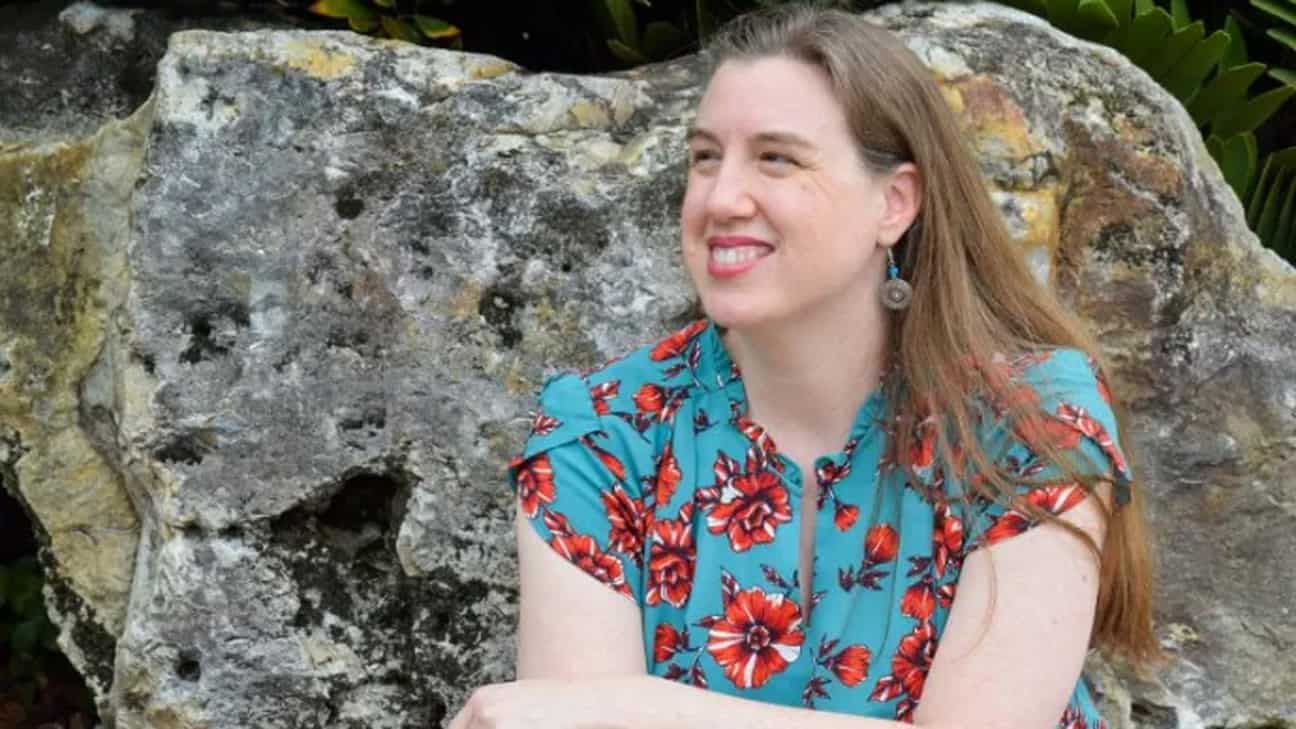
A Lecturer at the University of Florida, Anita Marshall is the director of the International Association for Geoscience Diversity, a national program dedicated to improving access and inclusion for people with disabilities in the geosciences.
Marshall helping to make geoscience more accessible and inclusive
Published November 1, 2023By Chris Jennings
According to the britannica.com, the broad aim of the Earth sciences is to understand the present features and past evolution of Earth and to use this knowledge, where appropriate, for the benefit of humankind.
Basically, earth scientists or geoscientists are on the front lines for saving the planet. Often, the people occupying this role are rugged outdoor types who are climbing mountains, exploring caves, spending weeks in the field in remote locations and, in general, performing very physical tasks.
Because of that, there’s not often a clear pathway for people with a physical disability to pursue a career in geoscience. Anita Marshall wants to change that.
Marshall, a Lecturer at the University of Florida, is the director of the International Association for Geoscience Diversity, a national program dedicated to improving access and inclusion for people with disabilities in the geosciences. She is also the leader of a unique field course and mentoring program called GeoSPACE, which addresses the accessibility and inclusivity of fieldwork.
“When I became a professor, I wanted to change that narrative and show people that everybody can do geoscience. You don’t have to be this outdoor athlete to be able to do that,” said Marshall.
Marshall, who was in a car wreck 20 years ago that nearly claimed her life, has had extensive reconstructive surgery on her legs. Her experiences and struggles in completing her degree drove her to create the program.
“A lot of it is based on my own challenges as a graduate student. When I was working on my PhD, I found that it was incredibly challenging to find where I fit in. I’m Indigenous, I have a disability, I have all these identities that didn’t seem to have a place amongst the people I saw doing geoscience,” Marshall said.
Those struggles prove too much for some people, and they walk away from a career that could be their passion. Marshall saw it as a challenge and decided to do something about it. “I decided I wanted to try to do something to fix it. Try to do something that could address these issues and build those spaces that I wished I’d had as a student,” Marshall said.
Marshall builds field trips that count towards a degree’s outdoor portion, but she ensures they’re more accessible.
“I build field trips where everybody can come, and it’s wheelchair accessible. We use drones to get to places where people can’t walk. And we create these, these, these, these experiences where everybody feels like they’re, they are welcome and encouraged to participate,” said Marshall.
Students are also able to pick if they work in person or remotely. Marshall says they are the only ones offering this. “This is completely unique to us. For the students participating remotely, we use YouTube live streaming and social media and things to keep them connected to what we’re doing in the field. And then the students that are in the field with us, we work very hard to make the entire course accessible and inclusive for as many identities as many backgrounds as we can,” Marshall said.
Marshall, who is also heavily involved with the Indigenous Geoscience community, says that being Choctaw greatly impacts how she teaches. The way many are taught to view the world is that there is only one objective way to see the world and our objective with the environment.
“Our Indigenous heritage shows us that there are many ways to view those relationships. There is a complex intersection between our cultures and the environment. If we bring that into our science spaces, it all goes back again to humanizing our science and helping people think about the human context of the landscapes that we’re studying. That’s been great to be able to start pulling in on how we teach geoscience from a more indigenous perspective,” Marshall said.
Marshall gets a lot of support, but she does get some resistance. “Some of these senior scientists are getting older, and it’s harder for them to get around in the field. They start realizing that the ideas I’m talking about could benefit them, too…there are others that feel like what I’m doing is attacking their way of life. They are basically offended by what I do. Those people are very challenging, but fortunately, I seem to be getting more support than I do resistance at this point, which is great,” said Marshall.
Marshall gets support from the National Science Foundation so that the students who participate can do so at no cost to them. Unfortunately, out of the over 100 applications they get each year, they can only select less than 20.
Marshall says that in 10 years, she would love to see similar programs at other schools. Her goal in running this program is to show others what can be done outside the traditional geoscience box.
“I’m hoping that this program expands to where many schools offer these accessible and inclusive courses and that our discipline changes to where we won’t need a special course. To where everybody’s field courses just become more accessible and inclusive and more people-centered than before,” said Marshall.